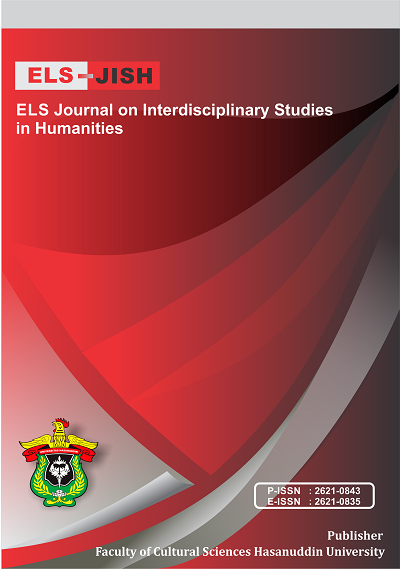Promoting Autonomous Language Learners through Lesson Study Program: Vigotsky’s Social Constructivism Perspective
DOI:
https://doi.org/10.34050/elsjish.v3i4.12338Abstract
The aim of the research is to analyze how Lesson Study promotes autonomous language learners viewed from social constructivism perspectives. This research applied qualitative method for data collection and analysis. The qualitative data were collected by trancribing the video recorded files of Lesson Study program. Data from video recorded files were analyzed by transcribing, classifying, coding, and categorizing to find out how Lesson Study promotes autonomous language learners viewed from Vigotsky’s social constructivism perspective. The result of the research indicates that the learners’ activities in Lesson Study cover all the three themes in Vigotsky’s social constructivism perspective, they are Social Interaction (SI), More Knowledgeable Others (MKO), Zone of Proximal Development (ZPD)
References
Baba, T. (2007). Japanese Education and Lesson Study: An Overview. New Jersey: World Scientific.
Breen, M. P. (1984). Process in syllabus design and classroom language learning. ELT Documents No. 118. London: Pergamon Press & The British Council.
Candy, P. C. (1991). Self-direction for lifelong learning. San Francisco: Jossey-Bass.
Cerbin, W. & Kopp, B. (2006). Lesson Study as a Model for Building Pedagogical Knowledge and Improving Teaching. International Journal of Teaching and Learning in Higher Education, 18 (3).
Dam, L. & Legenhausen, L. (1996). The acquisition of vocabulary in an autonomous learning environment - The first months of beginning English. Hong Kong University Press.
Dickinson L. (1987). Self-instruction in language learning. Cambridge: Cambridge University Press.
Dubin, J. (2009). American Teachers Embrace the Japanese Art of Lesson Study. Retrieved from http://www.aft.org/pdfs/americaneducator/fall/dub in.pdf. .
Esch, E. (1996). Promoting learner autonomy: Criteria for the selection of appropriate methods. Hong Kong University Press.
Fernandez, C., & Yoshida, M. (2004). Lesson Study: A Japanese Approach to Improving Mathematics Teaching and Learning. Mahwah, New Jersey: Lawrence Erlbaum Associates.
Hendayana, S., et.al. (2011). Development of Model of School-Based and Continuing Teacher Professional Development in West Java Province, Indonesia. Progress Report (January – March 2011) available at http://icls.upi.edu.
Holec, H. (1979). Autonomy and foreign language learning. Strasbourg: Council for Cultural Co-operation.
Holec, H. (1981). Autonomy and foreign language learning. Oxford: Pergamon.
Lewis, C. & Tsucida, I. (1998). A lesson is like Swiftly Flowing River: How Research Lessons Improve Japanese Education. American Educators, Winter 2008. American Federation of Teachers.
Little, D. (1995). Learning as dialogue: The dependence of learner autonomy on teacher autonomy. System [online] 23(2), 175-182.http://www.sciencedirect.com/science/article/pii/0346251X95000066
Little, D. (2009). Language learner autonomy and the European Language Portfolio: Two L2 English examples. Language Teaching. [online] 42(2), 222-233. http://journals.cambridge.org/action/displayAbstract?fromPage=online&aid=4638648.
Murata, A. (2007). Introduction: Conceptual Overview of Lesson Study. Lesson Study Research and Practice in Mathematics Education. (pp 1-5). London: Springer.
Nunan, D. (1997). Designing and adapting materials to encourage learner autonomy. London: Longman.
Vygotsky, L. (1978). Mind in Society. London: Harvard University Press.
Yoshida, M. (1999). Lesson study: A case of 'a Japanese approach to improving instruction through school based teacher development. Dissertation Abstracts International, 60 (11).
Downloads
Published
How to Cite
Issue
Section
License

This work is licensed under a Creative Commons Attribution-NonCommercial 4.0 International License.






